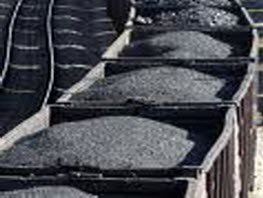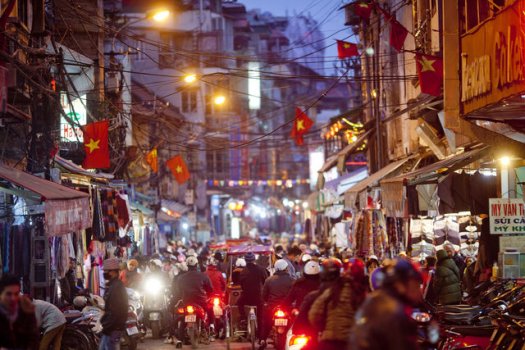Black
Verified Banker
Vietnam’s Vinacomin to Issue VND3Trl Bonds
The country's largest mining firm, Vietnam National Coal and Mineral Industries Group (Vinacomin), plans to issue 3,000 domestic bonds this year at 1 billion dong (US$48,000) each. The bond term will be for 5-7 years.

Chairman of the group's member council Tran Xuan Hoa said the capital mobilised from the bond issuance would be used to boost investment, business and production operations.
The group pledged it would manage and use the capital in accordance with its set purposes. The 2012 bonds would be a safe and effective investment, it said.
As part of a joint venture, acting as an issuance agent, Deputy General Director of the Viet Nam Bank for Industry and Trade (Vietin Bank) Le Duc Tho confirmed that Vinacomin's 2012 domestic bond issuance would follow the country's regulations as well as correspond with international standards. The bonds would enjoy floating interest to be paid annually, he said.
Deputy General Director of Vinacomin Nguyen Van Bien said his group would use the capital for projects in the 2011-15 period, which had been already approved by the Prime Minister. These projects were very important in contributing to ensuring the economy's need for coal and natural minerals and national energy security as well as economic development.
A report made after auditing showed the group's revenue reached 87.6 trillion dong ($4.3 trillion) in 2011, making a profit of 8.6 trillion dong ($413 million). Nearly 137,000 workers had an average monthly salary of 8 million dong ($380.95) each.
The group expects to earn 96 trillion dong ($4.6 trillion) this year.
At present, Vinacomin has been exploiting 23 open-cast coal mines and 46 coal pits. An alumina production factory, the first of its kind in Viet Nam, will come into operation by the fourth quarter of this year. Another will be operational at the same time next year.
The group has five electricity plants with a combined capacity of 1,110MW and is building four others with a combined capacity of 720MW.
Source VNA
The country's largest mining firm, Vietnam National Coal and Mineral Industries Group (Vinacomin), plans to issue 3,000 domestic bonds this year at 1 billion dong (US$48,000) each. The bond term will be for 5-7 years.

Chairman of the group's member council Tran Xuan Hoa said the capital mobilised from the bond issuance would be used to boost investment, business and production operations.
The group pledged it would manage and use the capital in accordance with its set purposes. The 2012 bonds would be a safe and effective investment, it said.
As part of a joint venture, acting as an issuance agent, Deputy General Director of the Viet Nam Bank for Industry and Trade (Vietin Bank) Le Duc Tho confirmed that Vinacomin's 2012 domestic bond issuance would follow the country's regulations as well as correspond with international standards. The bonds would enjoy floating interest to be paid annually, he said.
Deputy General Director of Vinacomin Nguyen Van Bien said his group would use the capital for projects in the 2011-15 period, which had been already approved by the Prime Minister. These projects were very important in contributing to ensuring the economy's need for coal and natural minerals and national energy security as well as economic development.
A report made after auditing showed the group's revenue reached 87.6 trillion dong ($4.3 trillion) in 2011, making a profit of 8.6 trillion dong ($413 million). Nearly 137,000 workers had an average monthly salary of 8 million dong ($380.95) each.
The group expects to earn 96 trillion dong ($4.6 trillion) this year.
At present, Vinacomin has been exploiting 23 open-cast coal mines and 46 coal pits. An alumina production factory, the first of its kind in Viet Nam, will come into operation by the fourth quarter of this year. Another will be operational at the same time next year.
The group has five electricity plants with a combined capacity of 1,110MW and is building four others with a combined capacity of 720MW.
Source VNA

